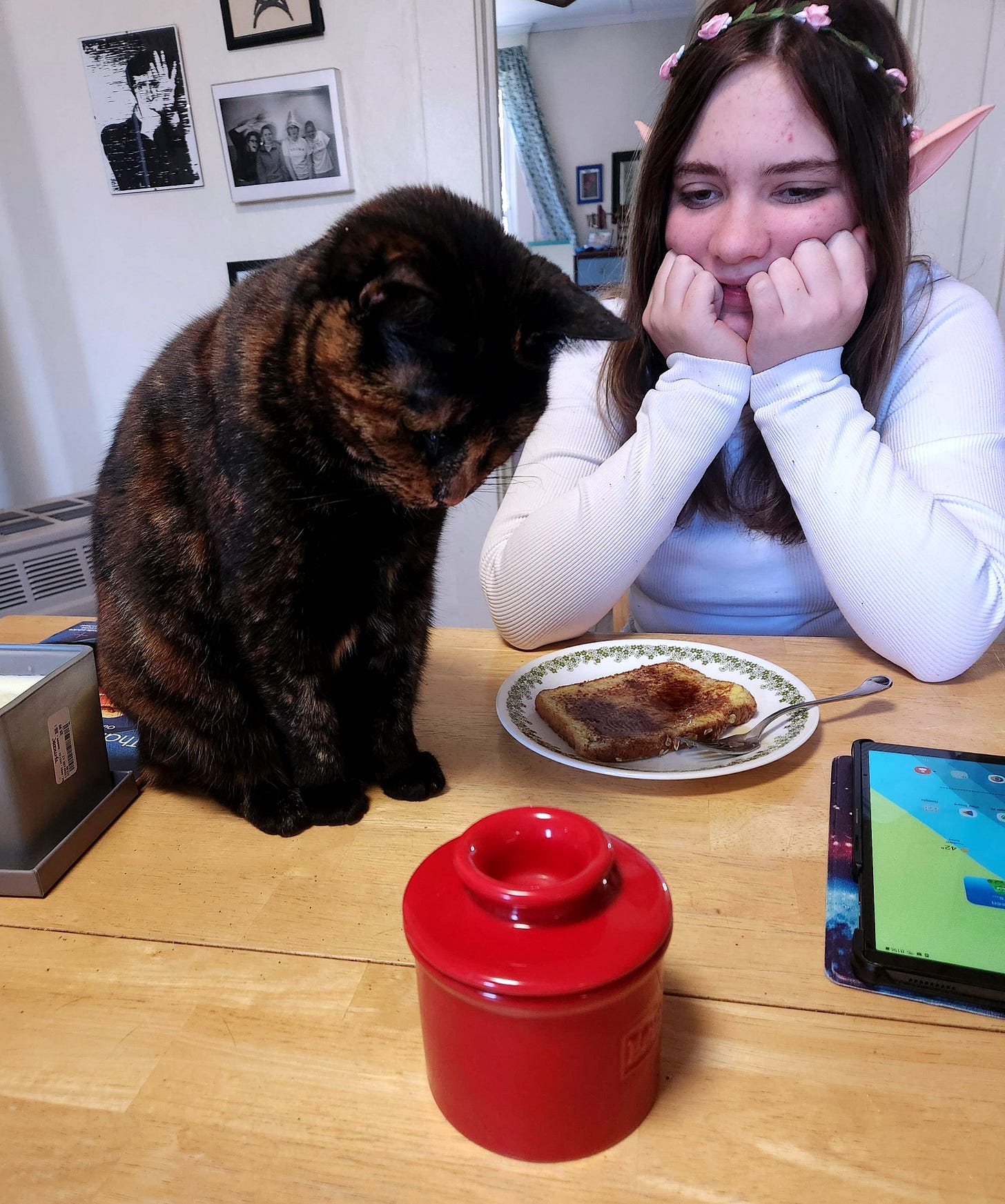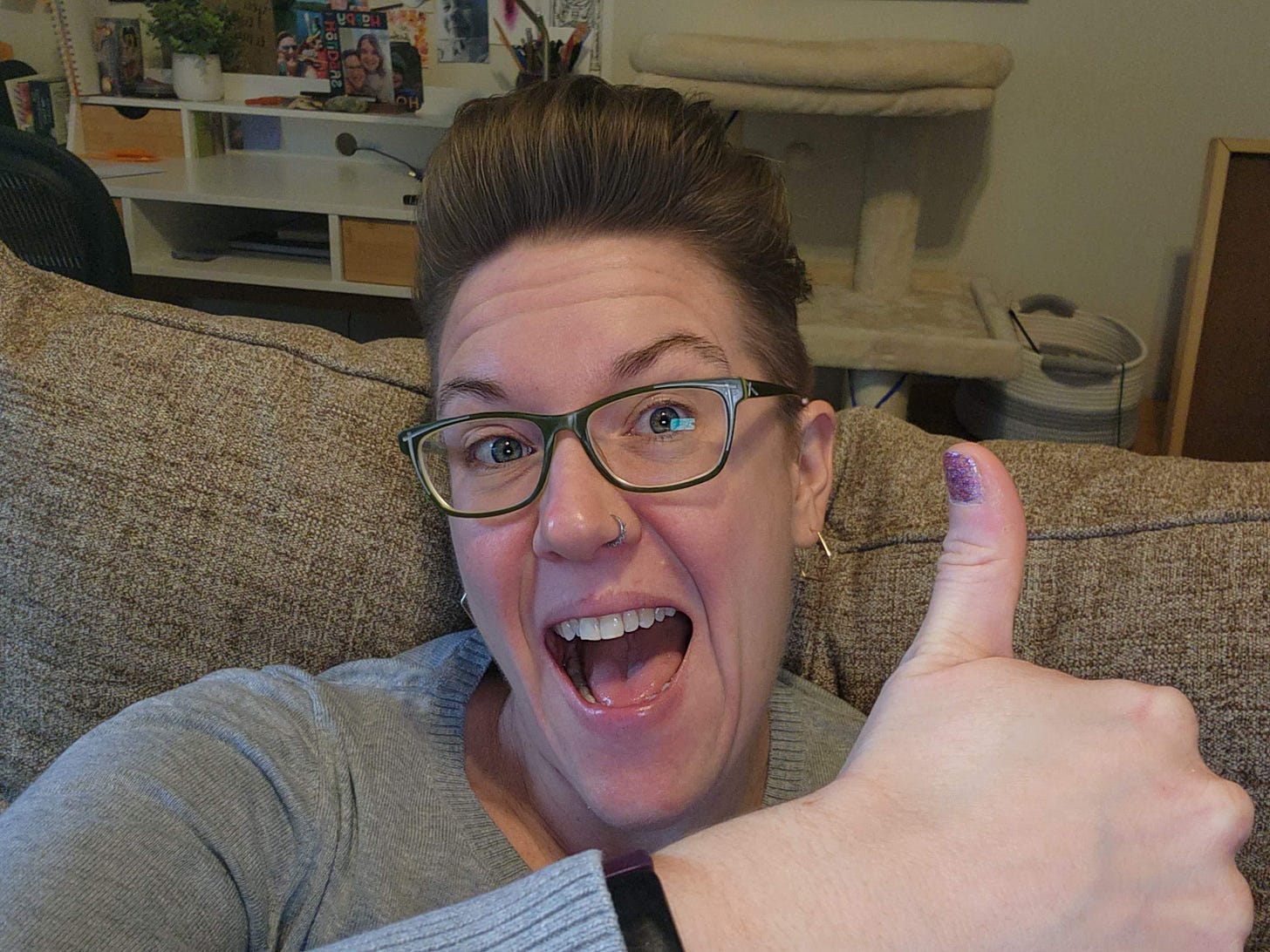Thinking like you're self-employed
No matter your job
For a decade, I worked at the same school. They were the boss of me, because they gave me an office and gave me a computer and gave me a paycheck every two weeks, from which they automatically deducted my taxes. My school was my employer, and in some way, I felt like I owed them loyalty or fealty or some other -ty that meant I should be grateful for what the provided me.
And I was grateful. I mean, I loved that office and that paycheck. I also loved my colleagues and my students.
But in retrospect, looking back at that job, I find in a little weird that I thought that job was the boss of me. There was a not-so-subtle power dynamic at play in my thinking, which made me feel like I had to do what I was told, do what was expected of me—even if I had good reason to question those things. I felt like I had to go above and beyond for the good of the organization, for the good of the children, for the good of the mission. I thought “I’m lucky to have this job.” Therefore, the power structure at play dictated that “the job” was in charge and I was subservient to it. “The job” held power, and I did what I was told.
(For the record, that job wasn’t evil or populated with bad people. I’m just talking about the general dynamic of “work” in America, really.)
Have you ever felt like your job was the boss of you?
I don’t think like that anymore.
In October of 2023, I started my business—named, oh-so-creatively, Rebecca M Walter LLC. When filling out the very official business-y paperwork, I began to get hung up on a business name, and then I decided that just naming it after myself gave me ultimate flexibility to provide whatever services made sense at the time.
Under the structure of my business, I have clients: coaching clients, college advising clients, instructional design clients, clients to whom I provide project management and consulting services. When I work with clients, I invoice them, and they pay me.
Things haven’t changed all the much — I still do work that supports people and systems. I still get paid for that work.
But now, my mindset is: My clients are lucky to have my services.
See how I flipped the script there?
That mindset shift was so powerful that I began to apply it even further!
I still have a part-time W-2 job. Technically, I have an employer. But I don’t think of it that way.
I choose to think of my half-time job as a consulting job. I think of myself as a business providing a service, and I think of my paycheck as an hourly rate I have billed for.
This makes it easier for me to draw boundaries between home and work — “This isn’t billable time.”
It makes it easier for me to say what I think at work — “They’re paying me for my expertise in this area.”
It makes it easier for me to maintain a self-identity beyond the job — “This is what I do for part of my day, not who I am as a person.”
It makes it easier for me to fairly assess if I want to keep this job at any given point — “This is just one of my many contracts.”

The mindset shift of being self-employed can be chosen by anyone. It’s a subtle, subversive, anti-capitalist shift that comes with a lot of benefits. I highly recommend exploring this, whether you formally own your own business or not.
For me, it has very little to do with how I get paid or what deductions I can claim on taxes (frankly, there are pros and cons). It has everything to do with valuing my own skills and expertise and only choosing to work with clients who also value them. It has to do with self-sovereignty, but also with integrity, flexibility, and freedom.
What about you?
Regardless of your working situation, do you find yourself working for yourself, or for your company/boss/employer?
Do you want to make a shift? Why or why not?
Onward,




